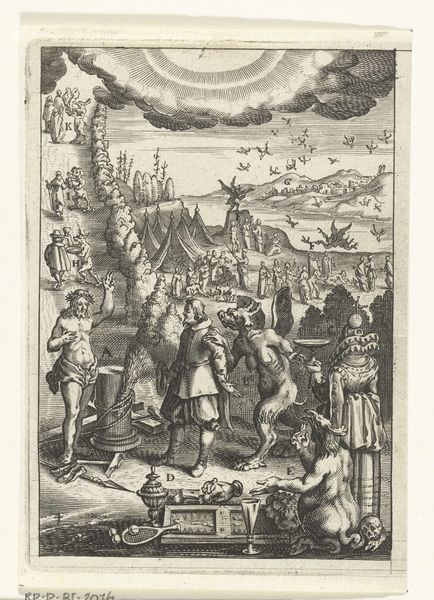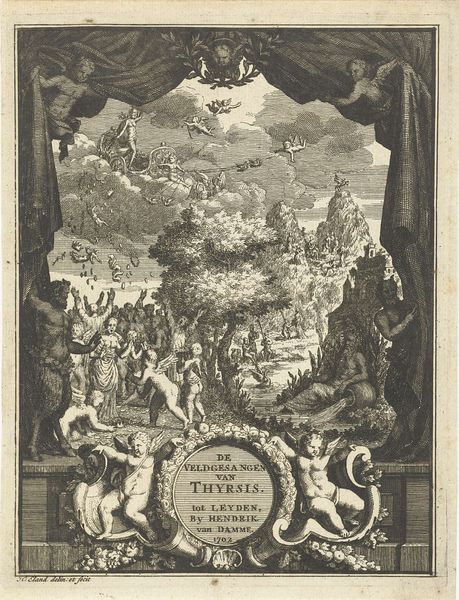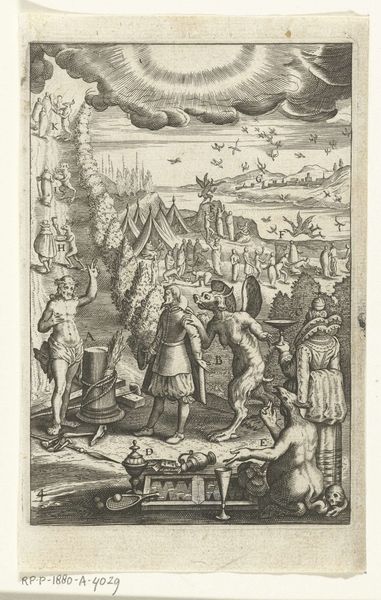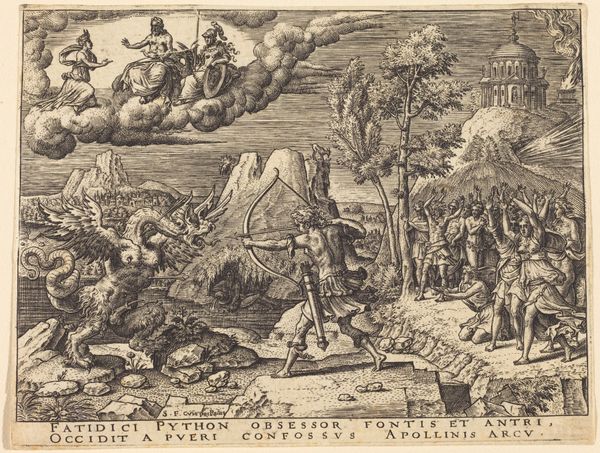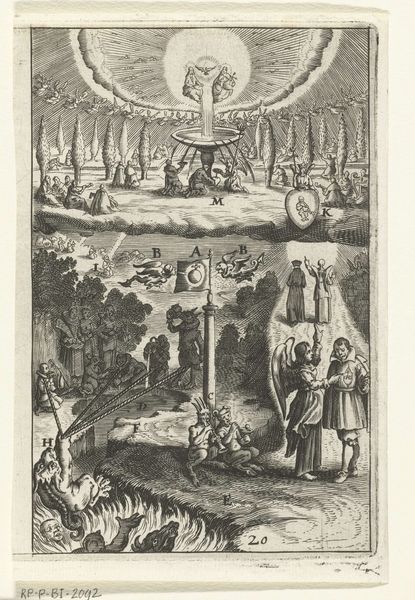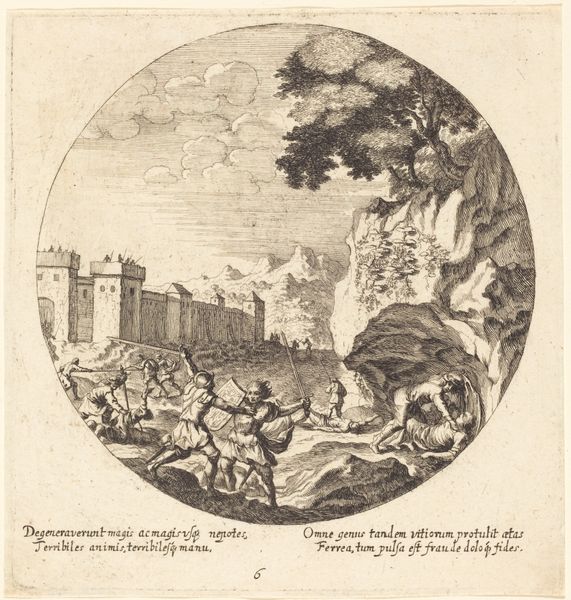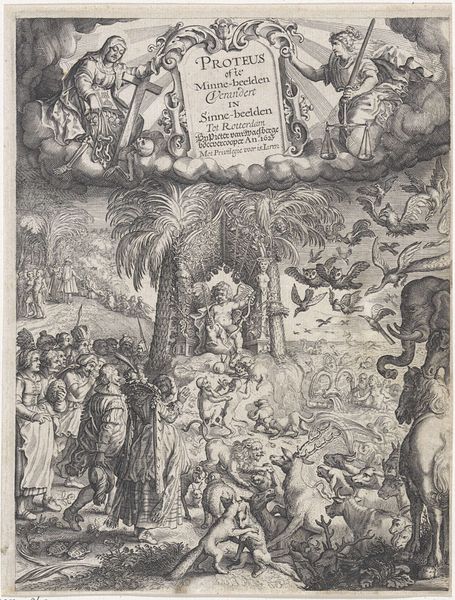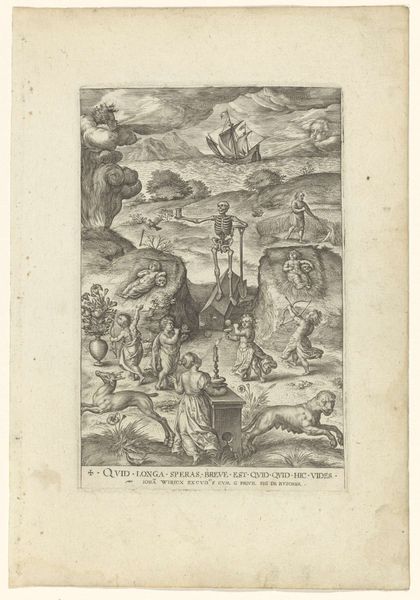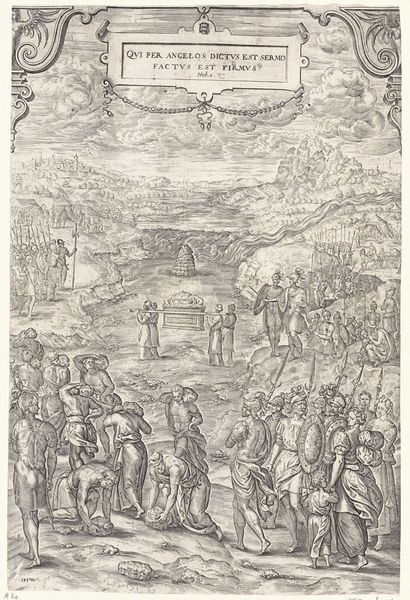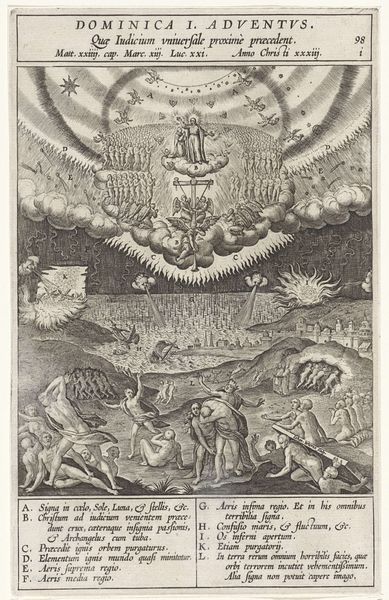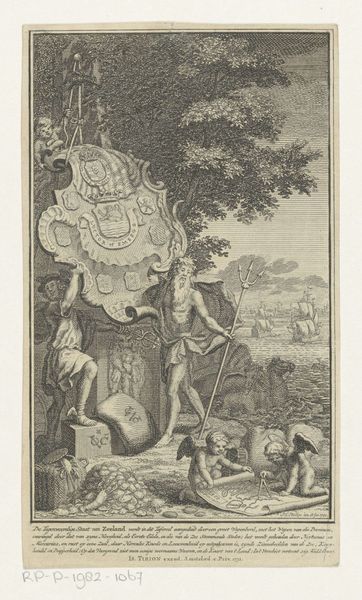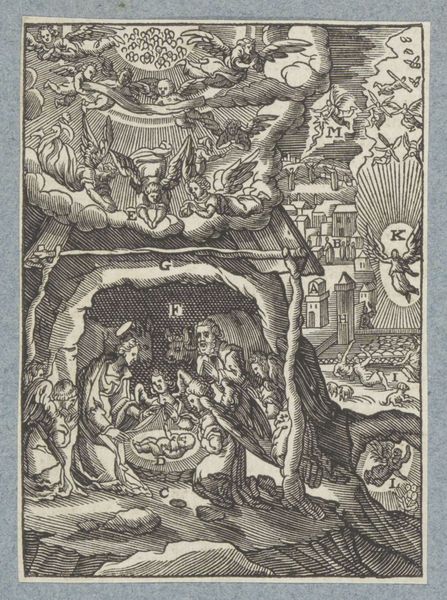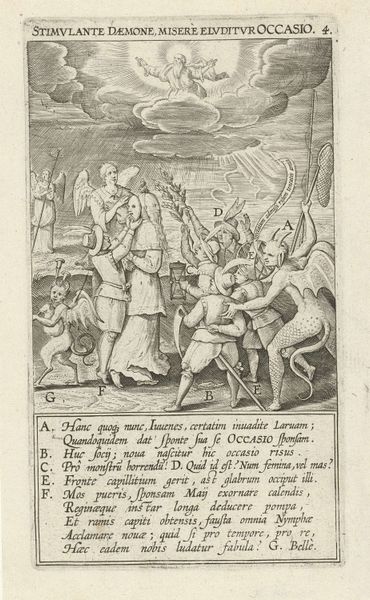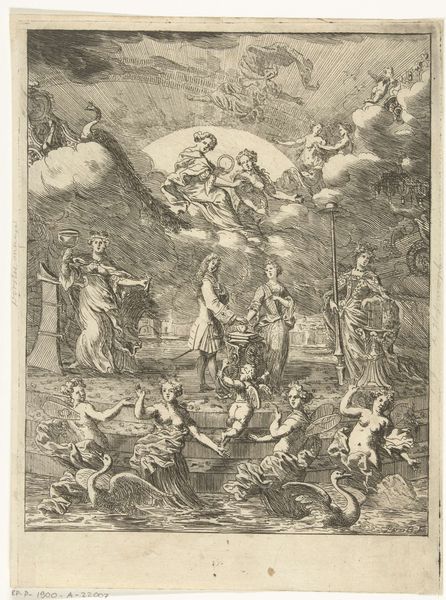
#
aged paper
#
toned paper
#
pen sketch
#
pencil sketch
#
old engraving style
#
personal sketchbook
#
pen-ink sketch
#
pen work
#
sketchbook drawing
#
sketchbook art
Dimensions: height 185 mm, width 141 mm
Copyright: Rijks Museum: Open Domain
Editor: Today we're looking at "Hooiwagen bestuurd door Vader Tijd en de Dood" by Cornelis Udemans, a pen-ink sketch created around 1660. It's rendered in that wonderfully intricate old engraving style. There’s a lot happening within this small circular space; it's quite striking. What compositional elements jump out at you? Curator: The overarching formal structure hinges on the circular composition itself. Notice how the artist uses the circle not just as a boundary, but to compress and intensify the allegorical scene. It amplifies the sensation of an all-encompassing cycle, where death and time are the inescapable forces. Do you see how the figures are arranged? Editor: Yes! Father Time and Death literally drive the hay wagon; everything seems to lead to and from them. What's the significance of their central placement? Curator: Udemans constructs meaning by way of precise relationships. The centrality underscores the conceptual crux of the piece, a semiotic knot where life’s endeavors and mortality are bound. The linearity of the wagon moving from left to right is interrupted by figures caught in the wagon's wake. Observe the balance achieved between line, mass and void and how it influences your understanding. Editor: It seems like the cyclical composition also directs the eye continuously towards these inescapable realities... fascinating! It does make you wonder about our place within the continuum, doesn’t it? Curator: Precisely. The circular form is not just aesthetic; it is philosophically integral. These shapes function as codes prompting further inspection. Editor: Thank you; seeing how the artist utilized this compositional strategy provides much clarity. Curator: My pleasure; the rigorous assessment of form reveals so much about an artwork's communicative potential.
Comments
No comments
Be the first to comment and join the conversation on the ultimate creative platform.
